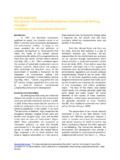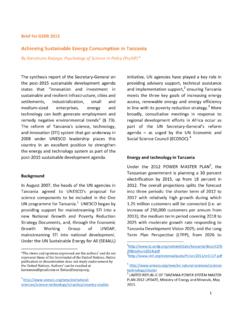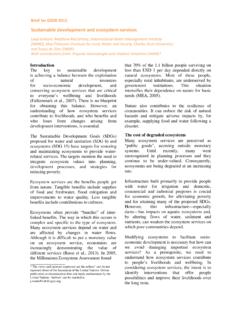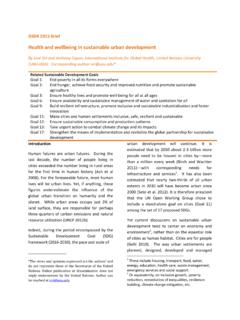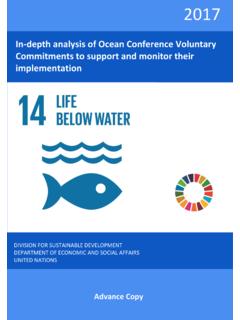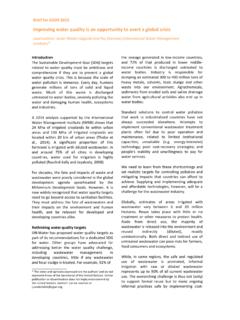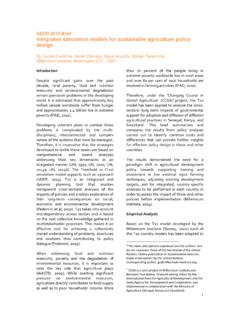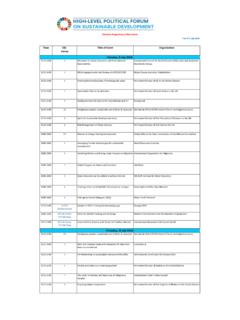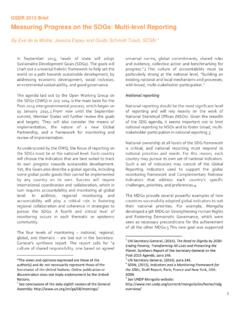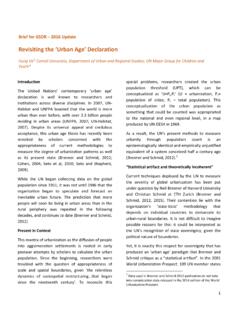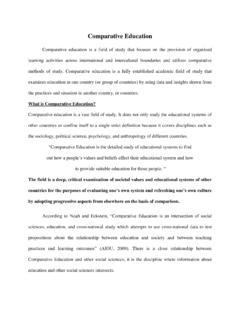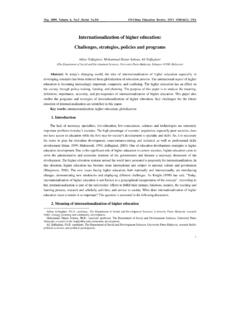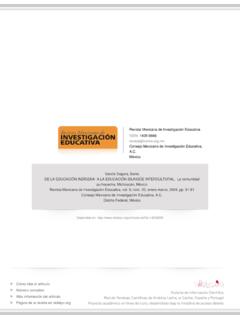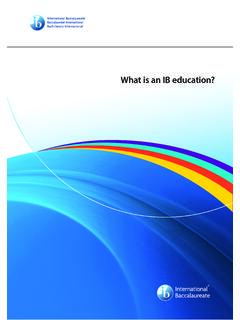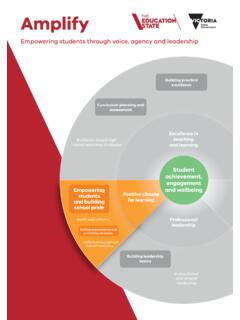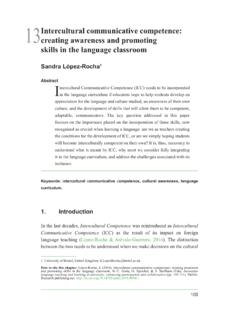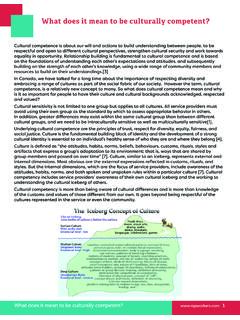Transcription of Education for Sustainable Development
1 Education for Sustainable DevelopmentAn Expert Review of Processes and Learning UNESCO 2011 Section for Education for Sustainable Development Division of Education for Peace and Sustainable DevelopmentUNESCO7, Place de Fontenoy 75352 Paris 07 SP FranceTel : 33 1 45 68 15 89 Fax : 33 1 45 68 56 35 Email : and printed at UNESCOP aris, FranceED-2010/WS/46 Prof. Daniella Tilbury (University of Gloucestershire, United Kingdom) is the author of this publication commissioned by UNESCO. The designations employed and the presentation of material throughout this publication do not imply the expression of any opinion whatsoever on the part of UNESCO concerning the legal status of any country, territory, city or area or of its authorities, or concerning the delimitation of its frontiers or boundaries.
2 The author is responsible for the choice and presentation of the facts contained in this publication and for the opinions expressed therein, which are not necessarily those of UNESCO and do not commit the Organization. PrefaceMonitoring and evaluation (M&E) is an integral part of Education programme planning and implementation. M&E provides stakeholders, programme managers, government offi cials, and civil society with the means for improving implementation of programmatic activities, demonstrating results, learning from past experience, planning and allocating United Nations Decade of Education for Sustainable Development (DESD, 2005-2014) is an endeavor that aims to reorient Education policy, practice and investment to address sustainability.
3 As the lead agency for the Decade, UNESCO is responsible for ensuring that appropriate mechanisms are in place to optimize the implementation of the Decade. To this end, UNESCO has put in place a three-phase monitoring and evaluation process that spans the life of the Decade complete with relevant methodologies and indicators. In keeping with the focus and within the framework of Phase II of the Monitoring and Evaluation process, UNESCO has commissioned this expert review on processes and learning for Education for Sustainable Development . This publication endeavors to identify which commonly accepted learning processes are aligned with ESD and should be promoted through ESD-related programmes and activities.
4 It also seeks to examine which learning opportunities contribute to Sustainable Development . I hope that this well researched and reader-friendly publication will contribute to develop a better understanding of the nature of ESD and help stakeholders to make the Decade of Education for Sustainable Development a success. Aline Bory-AdamsChiefSection for Education for Sustainable Development AcknowledgementsThe expert review of processes and learning for Education for Sustainable Development (ESD) is one of the key documents within the framework of Phase II of the Decade of Education for Sustainable Development (DESD)-related monitoring and evaluation extend our appreciation and thanks to Prof.
5 Daniella Tilbury, Chair, DESD Monitoring and Evaluation Expert Group (MEEG) for preparing this insightful and analytical review. We would particularly like to commend her unstinting commitment to prepare this review under extremely tight deadlines and to present it in a lucid and reader-friendly manner to facilitate a wide readership. Thanks are also due to the other members of the MEEG: Abelardo Brenes, Rangachar Govinda, Alex Michalos, Yoshiyuki Nagata, Ro l van Raaij, Overson Shumba, Konai Thaman, Pierre Varcher and Alcyone Vasconcelos, for their invaluable comments to fi nalize this also extend our appreciation to the various stakeholders, partners and actors who have contributed to the expert review by providing case studies to substantiate the theoretical extend our gratitude to the Japanese government for providing the fi nancial support through the Japanese-Funds-In-Trust (JFIT)
6 To the DESD monitoring and evaluation process. ContentsExecutive summary .. 7 Context .. 11An expert review .. 15 What are commonly accepted learning processes aligned with ESD? .. 19 What is the contribution of learning to Sustainable Development ? .. 41 Case studies .. 59 Conclusion .. 103 Bibliography .. 109 Appendices .. 129 T he United Nations Decade in Education for Sustainable Development (DESD, 2005-2014) is a global movement which seeks to transform Education policy, investment and practice. If it is successful, the DESD could change not only Education but also the quality of life for many people across the globe.
7 Acknowledging the potential impact of the DESD, UNESCO established a Monitoring and Evaluation Expert Group (MEEG) in 2007. This expert review was commissioned as part of Phase II of the Global Monitoring and Evaluation eff ort for the key objective of this expert review is to gather information to inform the choice of tools and the specifi c questions which need to be asked as part of the 2011 DESD monitoring and evaluation report. The review seeks clarifi cation on:i) Which commonly accepted learning processes are aligned with ESD and should be promoted through ESD activities?
8 Ii) What are ESD and related learning opportunities contributing to Sustainable Development ? ESD learning frameworks and processes The review has identifi ed that certain key processes underpin ESD frameworks and practices. These include: processes of collaboration and dialogue (including multi-stakeholder and intercultural dialogue); processes which engage the whole system ; processes which innovate curriculum as well as teaching and learning experiences; and, processes of active and participatory summary8 DESD Global Monitoring and Evaluation: Phase II Learning for ESD refers to what has been learnt and is learned by those engaged in ESD, including learners, facilitators, coordinators as well as funders.
9 Often learning is interpreted as the gaining of knowledge, values and theories related to Sustainable Development but, as this review indicates, that ESD learning also refers to: learning to ask critical questions; learning to clarify one s own values; learning to envision more positive and Sustainable futures; learning to think systemically; learning to respond through applied learning; and, learning to explore the dialectic between tradition and information provided by this review can be used to map where ESD is taking place across the globe, by assessing the content and processes underpinning such initiatives.
10 There is often a tendency to map issues covered by ESD initiatives when in fact, there is also a need to review the processes underpinning these critical lesson learnt through the review process is that it is diffi cult to access data on ESD processes and learning opportunities as these are rarely documented in suffi cient detail in the literature. There is an abundance of information available about the specifi c objectives and outcomes of projects, but a noticeable lack of data to show how these objectives and outcomes are achieved.
